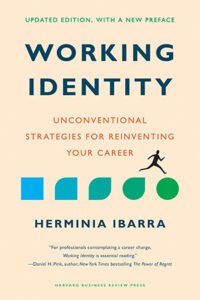|
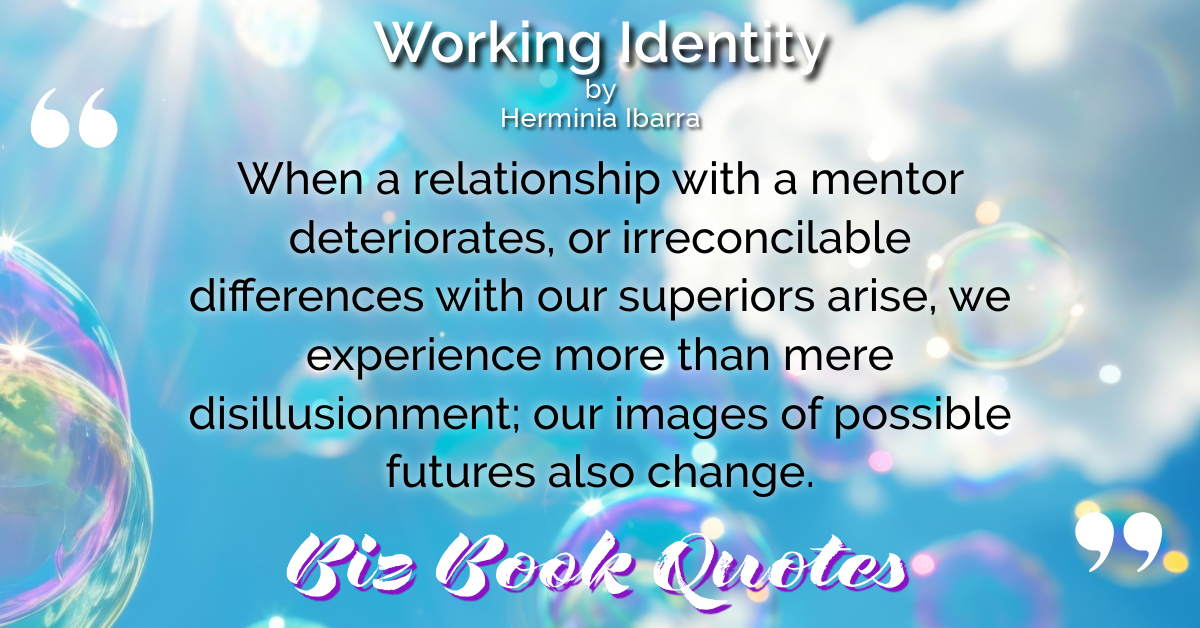
|
Working Identity:
When a relationship with a mentor deteriorates, or irreconcilable differences with our superiors arise, we experience more than mere disillusionment; our images of possible futures also change.
|
056 |
|
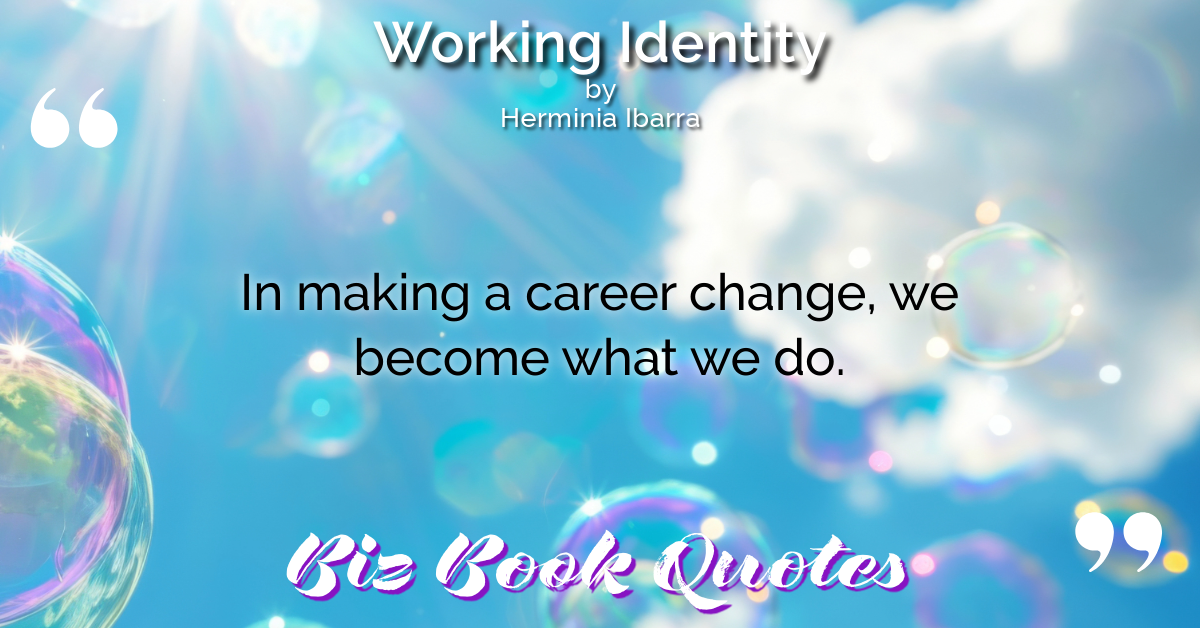
|
Working Identity:
In making a career change, we become what we do.
|
059 |
|
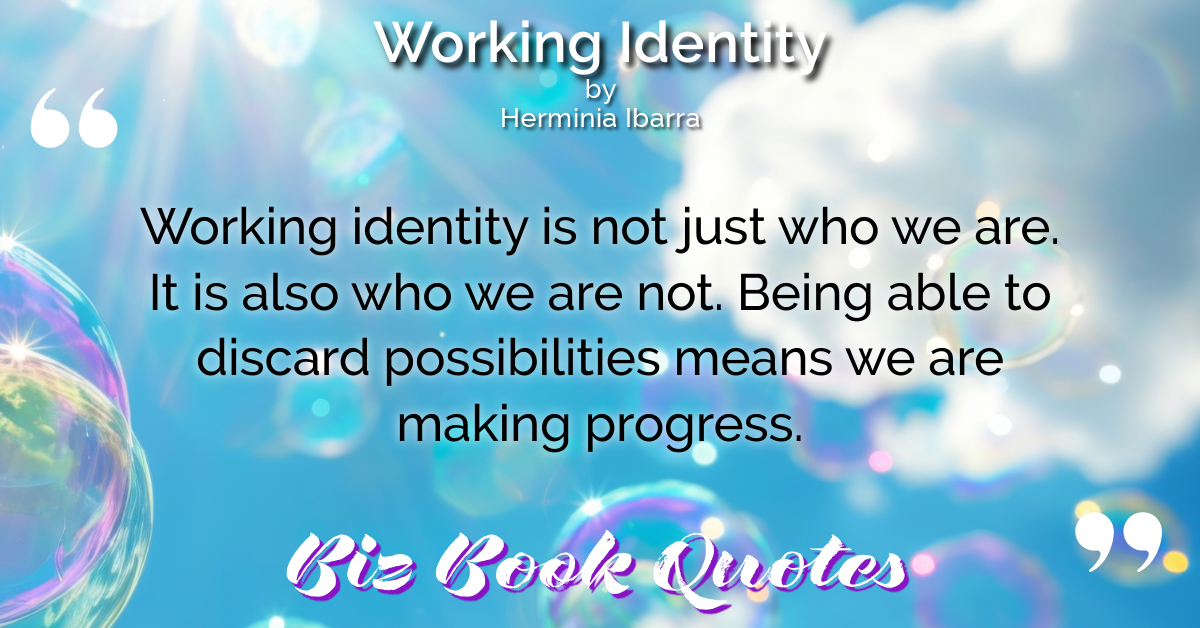
|
Working Identity:
Working identity is not just who we are. It is also who we are not. Being able to discard possibilities means we are making progress.
|
062 |
|
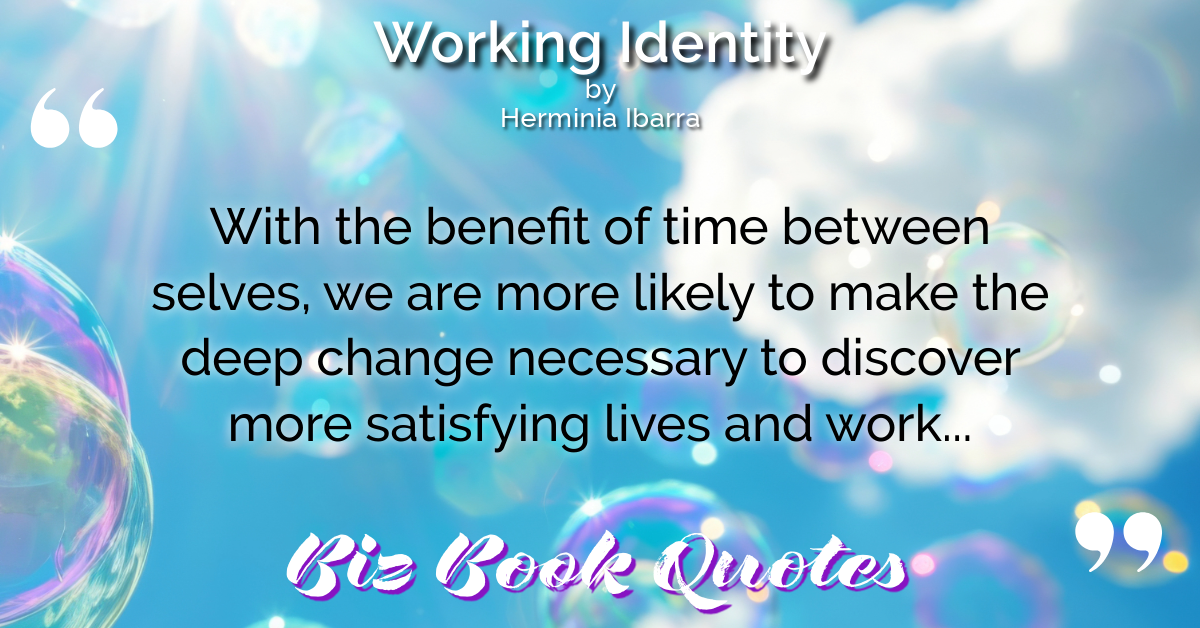
|
Working Identity:
With the benefit of time between selves, we are more likely to make the deep change necessary to discover more satisfying lives and work…
|
065 |
|
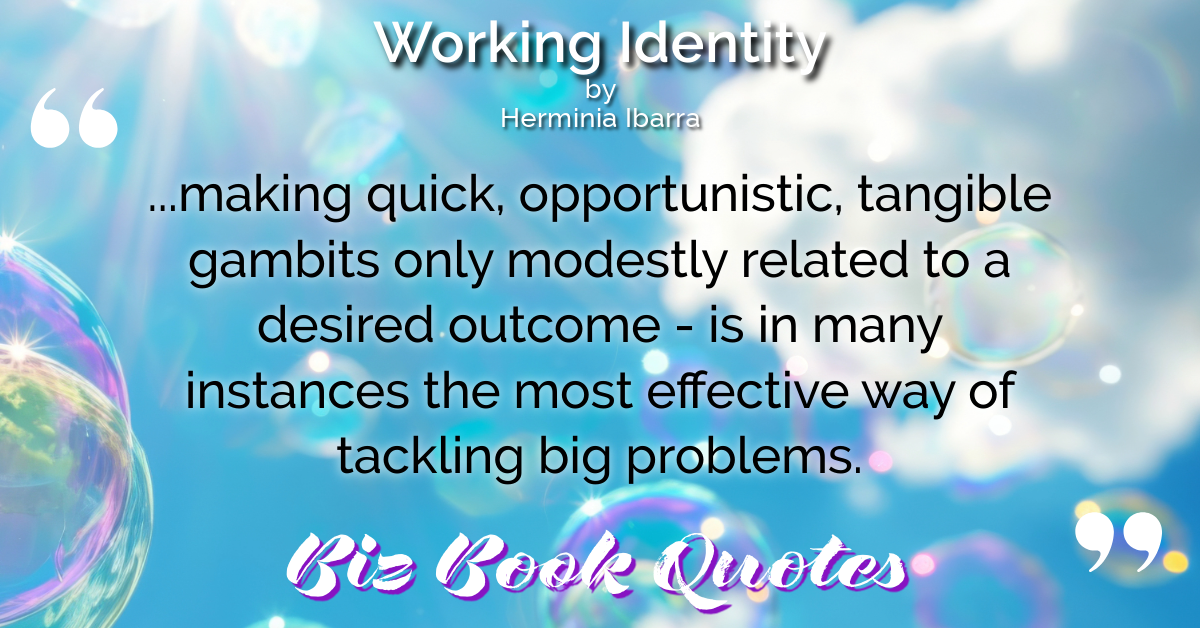
|
Working Identity:
…making quick, opportunistic, tangible gambits only modestly related to a desired outcome – is in many instances the most effective way of tackling big problems.
|
074 |
|
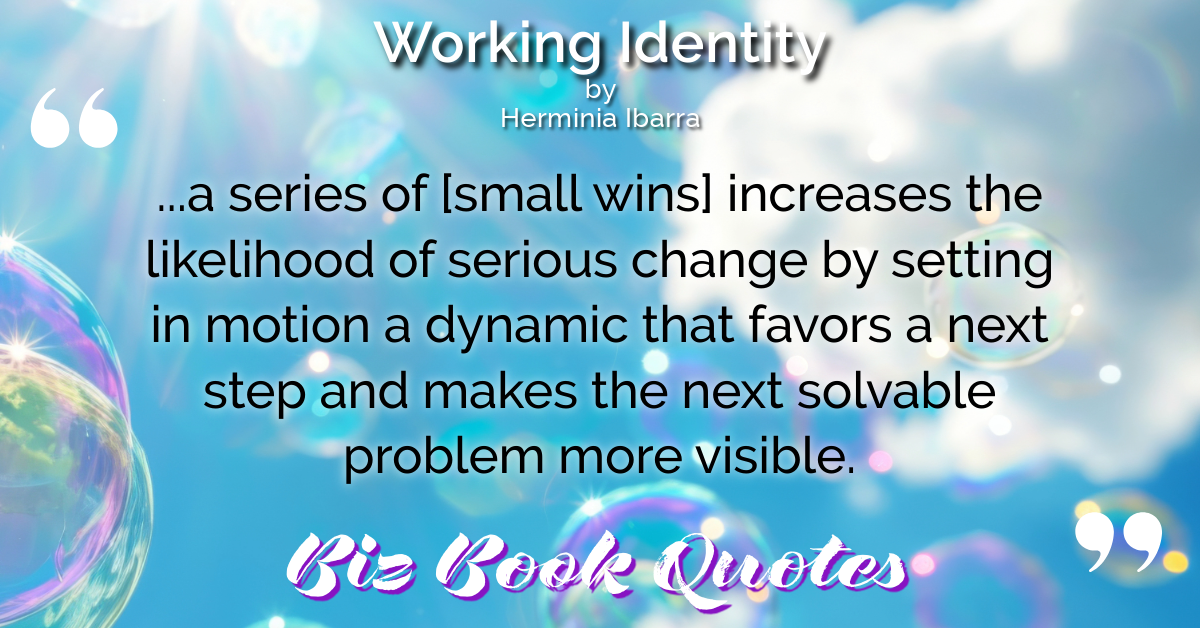
|
Working Identity:
…a series of [small wins] increases the likelihood of serious change by setting in motion a dynamic that favors a next step and makes the next solvable problem more visible.
|
074 |
|
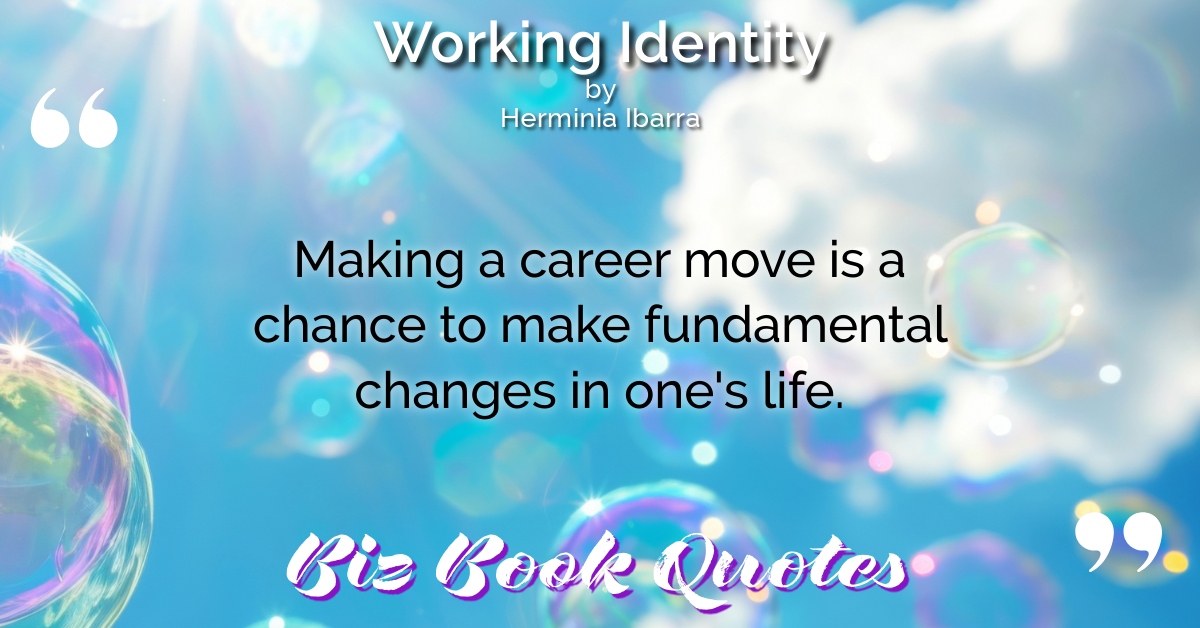
|
Working Identity:
Making a career move is a chance to make fundamental changes in one’s life.
|
075 |
|
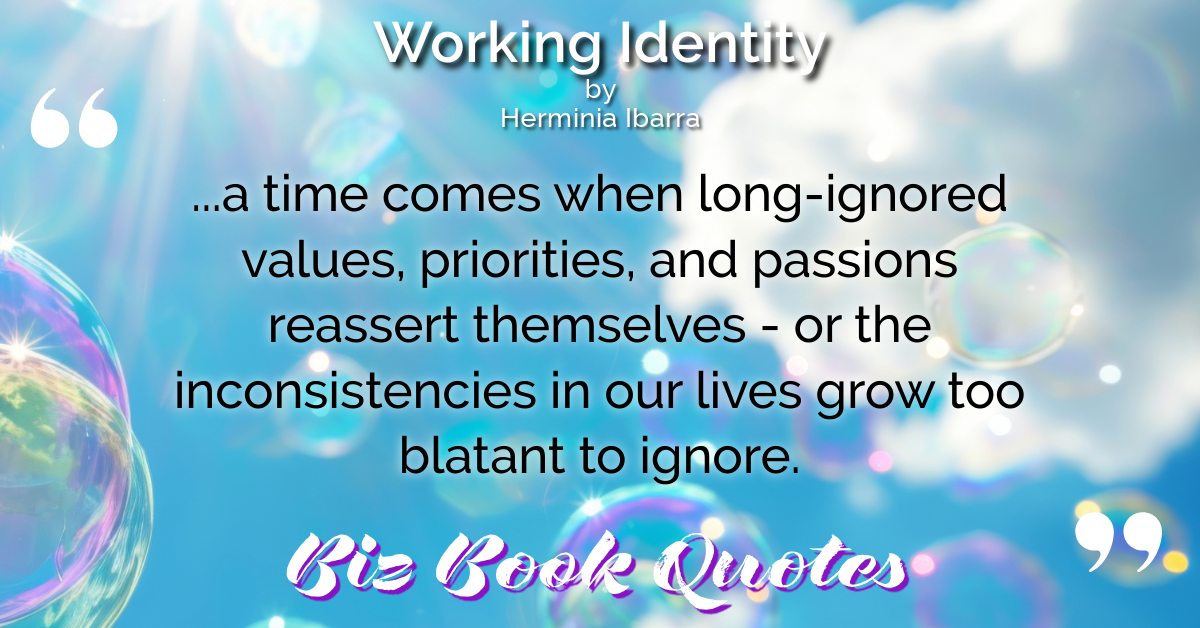
|
Working Identity:
…a time comes when long-ignored values, priorities, and passions reassert themselves – or the inconsistencies in our lives grow too blatant to ignore.
|
075 |
|
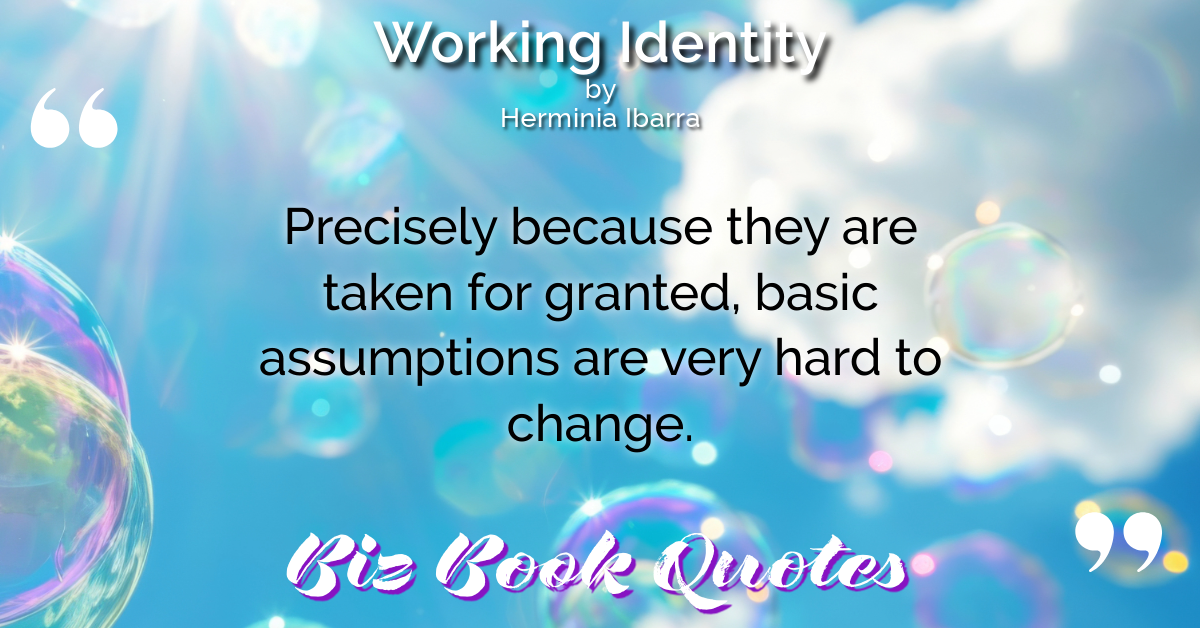
|
Working Identity:
Precisely because they are taken for granted, basic assumptions are very hard to change.
|
082 |
|

|
Working Identity:
In career transitions, the basic assumptions that typically prove most resistant to change concern our emotional relationships with institutions, our benchmarks for success, and our preconceived notions about viable work arrangements.
|
082 |
